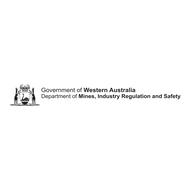DMP geospatial science officers have been rewarded for their studies.
| Date: | Monday, 14 July 2014 |
|---|
A group of Department of Mines and Petroleum staff working in the geospatial science area have achieved notable tertiary academic success.
A talented group of Department of Mines and Petroleum staff have been recognised for academic excellence.
The Mineral Titles officers are honing their skills in geospatial science, a field that is increasingly being used for analysis and decision making.
Spatial locational data is a key identifier for the integration of information within business systems.
Minerals Titles Executive Director Ivor Roberts said DMP considered itself to be a learning organisation where it was a core aspiration to encourage staff in up-skilling and continuous learning.
“I always encourage my staff to acquire more knowledge and expertise,” Dr Roberts said.
“This ensures that we provide the best service possible to our stakeholders and it is rewarding to see our officers gain high academic achievements in the process.”
Mineral Titles Spatial Services Manager Craig Wainwright added his congratulations, saying: “Spatial science is a professional, highly specialised field of expertise and one of ever increasing importance within DMP.”
Geospatial Officer Paul Hewson won the C.W.A. Lewis Memorial Award for Best Second Year Student in Bachelor of Science 2014 (Geographic Information Science).
“DMP provides great support for further study and career development,” Paul said.
“This study helps further improve my work by using the latest technology in geospatial information science.”
Graduate Officer Matt Aravidis won the Hexagon Geospatial Prize 2014 for Best Final Year project or honours dissertation in the field of Remote Sensing
His project was on sea level changes on the Bangladesh coastline.
“This award gives me added confidence that I can achieve big things here at DMP both on and off the Graduate Program,” Matt said.
Senior Geospatial Officer Carolyn Martin’s Masters in Geospatial Science is scheduled for completion later this year.
Her thesis is based on advanced Geographic Information Systems coursework and involves two self-directed research projects in the field of underwater photogrammetry.
Carolyn’s research concentrated on the potential for new camera technology (using Go-pro cameras) to be used in the photogrammetric mapping and 3D digital mapping and reconstruction of shipwrecks.
The key outcome of her research has been to influence equipment decisions for the $20 million HMAS Sydney project.
She has been invited to continue her research as part of a PhD thesis.
Geospatial Officer Amanda Roscoe successfully completed her Graduate Diploma in Geographic Information Science and Degree, which was conferred in October 2013.
Her study units included cartography principles, programming and spatial database systems.

